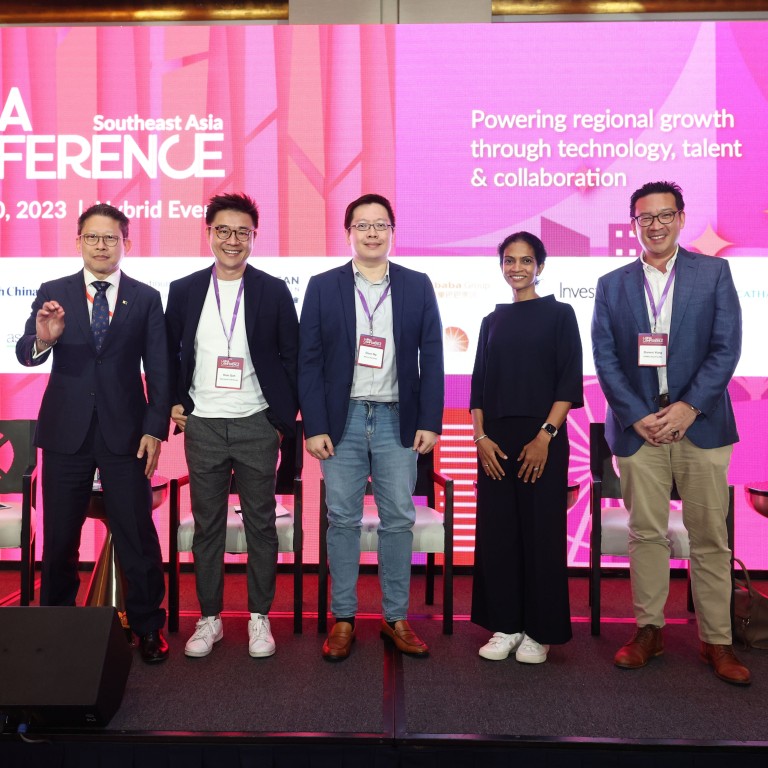
Southeast Asian start-ups need to be careful when expanding, and not rush to copy WeChat’s success in China, investors say
- Tech companies should ‘earn the right’ to expand into new business categories after creating a solid core business, investors say
- Southeast Asian tech companies including Indonesia’s Gojek and Singapore-based Grab, both started as ride-hailing apps
Southeast Asian tech companies need to be cautious with diversification efforts and not charge ahead by trying to replicate the success of super apps such as China’s WeChat, according to entrepreneurs and investors at the Post’s China Conference: Southeast Asia in Singapore on Wednesday.
Tech companies should “earn the right” to expand into new business categories after creating a solid core business, as opposed to pursuing it as a business model from day one, said Hian Goh, founder and general partner of venture capital firm Openspace Ventures.
The super app model, where users have access to a wide range of services and functions within one mobile application, was pioneered by Tencent Holdings with WeChat – which has evolved into a multipurpose tool with various mini programs.
WeChat has been proven to work in China, and some companies in Southeast Asia have tried to apply the concept to the region, which also has high mobile internet penetration rates and fast connectivity among large and fast-growing populations.
Digital banking set for boom in Indonesia as tech giants muscle in
For example, Southeast Asian tech companies including Indonesia’s Gojek and Singapore-based Grab, both started as ride-hailing apps before later expanding across various local services. Gojek merged with Indonesian tech firm Tokopedia in 2021 to form a digital giant spanning e-commerce, ride-hailing and financial services.
However, Goh, an early investor in Gojek, noted that expansion moves by the platform were not planned from day one, rather “it earned the right” to move into other services after its ride-hailing service opened up opportunities in fields such as financial services.
“When we started with Gojek, the ambitions were small – it was supposed to be a ride-hailing app,” said Goh.
“I always hear people say ‘we’re gonna build the super app’ but Gojek didn’t start off like that. So I think it was a function of necessity, and we have to be very careful when we try to be revisionist in understanding how super apps came about.”
Echoing Goh, Manisha Shah, chief financial officer of Vietnamese fintech company MoMo, said that her company only managed to grow from an e-wallet to a platform covering e-commerce, travel, financial solutions and other services after building trust with its initial money transfer business.
“It took us about six years to get our first million users, and in the next five years we added 30 million users, because the education and trust needed at the beginning for payments when it was very nascent in Vietnam was very high,” said Shah.
Established in 2017, MoMo has become Vietnam’s biggest e-wallet operator that also allows users to play games, shop online and pay bills. It achieved unicorn status in 2021 after raising US$200 million from investors led by Mizuho Bank to power its growth as a super app.
After its deal with Gojek, can an AirAsia superapp soar in Southeast Asia?
When tech companies are looking to expand new businesses, they need to identify the demands of core users, said Dave Ng, General Partner at Altara Ventures.
“Southeast Asia [firms] or in fact any business in any ecosystem, cannot run away from the basic fundamental fact that it has to be demand driven and user driven. At the end of the day there has to be a willingness to pay,” said Ng.
Compared to China, where the concept originated, the super app model is still “a work in progress” in the Southeast Asian region, added Ng.


